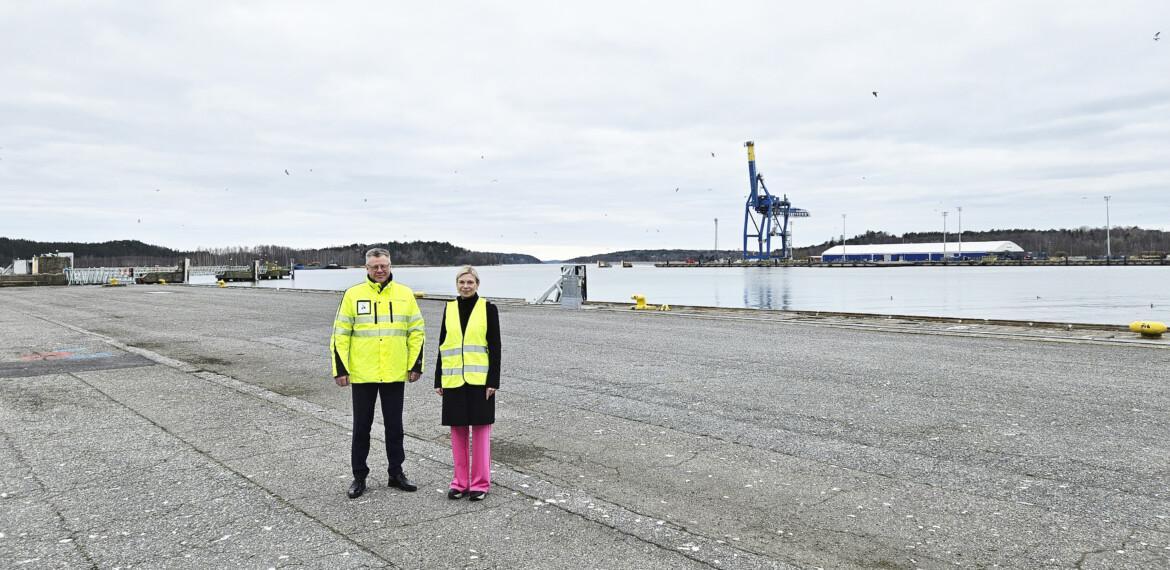Into the future through broader co-operation

At the time of writing, the first months as the CEO of the Finnish Ports Association are behind me. Recent years have changed our operating environment, and the economic outlook in Finland and the rest of Europe continues to be foggy, but we nevertheless keep our eyes fixed to the future. These days, looking after Finland’s logistical competitiveness is emphasised even more than before in the lobbying activities of the Association. At national level, the updating of the 12-year transport system plan and preparation of the industrial policy strategy are in progress. Finland’s accessibility has changed due to geopolitics, and we are even more dependent on sea transports. 95.7 per cent of Finland’s foreign trade was carried by sea in 2023, which indicates that Finland really is in effect an island. For the sake of comparison: this figure in the EU on average is around 70%. Strengthening the operating prerequisites of Finnish ports and maritime transports on the whole is important, and against this background, for example the raise of fairway charges decided on in the Government’s discussion on spending limits in the spring is regrettable.

In my new job, key duties include co-operation with stakeholders and lobbying. Today’s challenges require cross-sectoral examination, and co-operation with, for instance, defence and energy policy players and the emergency supply organisation is emphasised in a new way in the everyday operating of ports. Examples include energy supply solutions in ports and their role in supporting the energy transition in society on the whole, as well as the logistics need of the defence forces. Interlinking ports with energy production and energy distribution requires major investments in port infrastructure, if and when e.g. the building of off-shore wind turbines will turn ports into support areas for them. Ensuring Finland’s security of supply and the issues related to the membership in NATO set their logistical requirements for ports as well as the transport system on the whole. Ultimately everything is interlinked with logistics, including investment decisions by the industry.
The elections to the European Parliament to be held in June are an important opportunity to affect the future and decision-making of the EU. There is a need also in the EU tables for decision-makers who understand the significance of ports and seafaring to Finland and all of Europe. After the result of the election is published, we will wait for the appointment of the new Commission and its work programme. The programme of the new Commission will probably place most emphasis on strengthening security and competitiveness in Europe. Support to Ukraine and preparing for its reconstruction is a major joint effort. Regarding the operating of ports, key issues include strengthening the strategic autonomy of Europe, in relation to which the EU wants to limit more effectively the grip of foreign players on European critical infrastructure, including ports. As for climate policy, the ports hope for a short break and European tools to support investments in green energy. The investment needs of ports in Europe total around 80 billion euros over the next ten years, and the industry will also need public subsidies for that.
A firm foundation for my work is laid by the Finnish Ports Association’s knowledgeable organisation and my predecessor Annaleena Mäkilä’s relentless work for the port industry both in Finland and internationally. In my work I can also utilise my two decades of experience in transport policy. I have already earlier had the chance to get to know port industry colleagues e.g. in connection with the preparation of Finland’s national maritime transport strategy in the Ministry of Transport and Communications and while working in the European Parliament at transport, climate and energy policies. My own expertise and that of the entire organisation of the Finnish Ports Association is at the disposal of the whole port industry.
Together we strengthen the operating prerequisites and competitiveness of ports as part of international logistics and work for maritime transport which is important to Finland. Ports have always played a very important role in the development of Finnish society, cities and industry, and today this significance is being emphasised further.
Piia Karjalainen
The writer is the CEO of the Finnish ports Association since 1 February 2024.
Photos: Heli Sorjonen ja Marjo Saviranta

